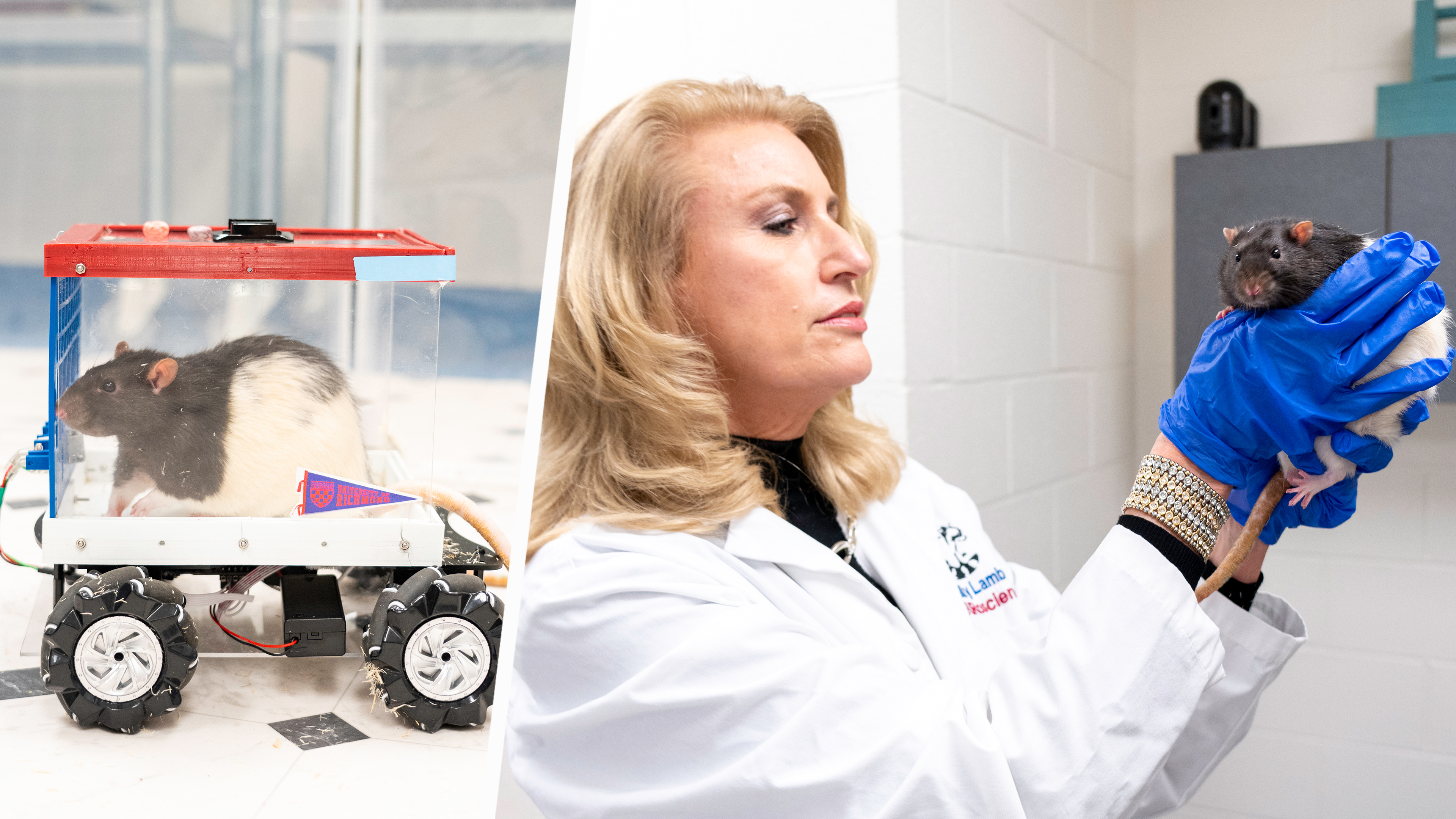
Behavioral neuroscientist Kelly Lambert is interviewed on Malcolm Gladwell’s podcast.


Kelly Lambert, a professor of behavioral neuroscience, is available to discuss the latest developments in the innovative research she leads at the University of Richmond — teaching rats to drive. The project first made headlines around the world (1,500 news outlets in 40 countries) when Lambert's team of psychology researchers published their research in 2019. The results of this important research may inform future strategies for mental health treatments. The rodent-driving research has also been highlighted in two documentaries, including one on Netflix.
"This project has created amazing opportunities for scientific outreach and education," Lambert said. "The driving rat captures attention, and then we can teach them more about the brain."
Lambert and her undergraduate research students explore the neurobiology of stress, resilience, depression, parenting, and natural enrichment. Lambert is also an expert on the hand/mind connection and can also discuss why working with our hands in crafts such as knitting can be beneficial to our mental health.
“Brains change from the womb to the tomb, so it is important to understand how various experiences guide the life-long modifications of our neural networks, a process known as neuroplasticity,” Lambert said.
"Our lab focuses on something we refer to as experience-based neuroplasticity, so we're interested in how our environment and our interactions with the world sculpt our brain, our neural networks. This research has therapeutic value as we learn more and helps us understand mental illness and mental health, and our collaborators are the rodents," Lambert said.
"We have a rat lab here at the University of Richmond, and rat brains have all the same areas that our brains have and neurochemicals, so it's a good starting point, a model, to use to learn more about the human brain. We love to study these animals, and we're always amazed at what they can do in the lab with their behavior, their cognitive flexibility, and their emotional resilience. The rodent behavior and their brains help us learn more about human behavior and brains."
Contact Sunni Brown at sbrown5@richmond.edu to connect with Lambert.

Behavioral neuroscientist Kelly Lambert is interviewed on Malcolm Gladwell’s podcast.

Research by behavioral neuroscientist Kelly Lambert is featured.

Behavioral neuroscientist Kelly Lambert is interviewed on this podcast.

Research by behavioral neuroscientist Kelly Lambert is featured.

Behavioral neuroscientist Kelly Lambert is quoted.

Research by behavioral neuroscientist Kelly Lambert is featured.